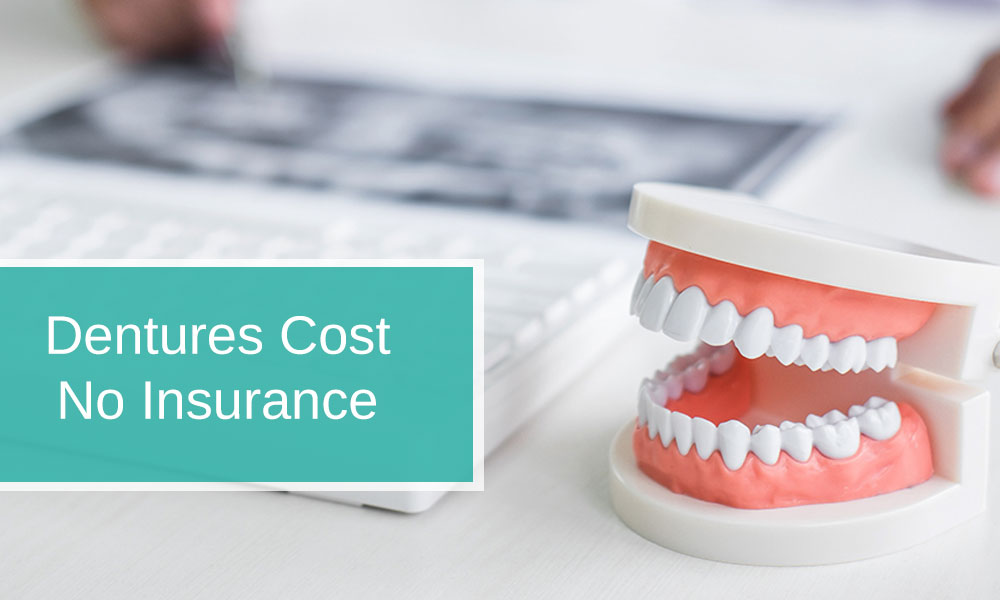
Dentures Cost no Insurance
I. The Significance of Dentures
Dentures play a critical role in restoring not only the aesthetics of a smile but also the functionality of the mouth. Partial or half dentures can cost an estimated $400 to $1,600 without insurance while Full dentures are priced at an estimated $3,000 without insurance. For individuals missing teeth, whether due to age, decay, or trauma, dentures are a viable solution to improve speech, chewing ability, and overall quality of life. They provide support to facial muscles, preventing sagging and maintaining a more youthful appearance.
Beyond aesthetics, dentures contribute to better nutrition by enabling individuals to chew a variety of foods, supporting overall health. They also address speech issues caused by missing teeth, enhancing communication and confidence. Understanding the importance of dentures lays the foundation for appreciating the financial investment they entail.
II. Types of Dentures
A. Complete Dentures
Complete dentures are designed for individuals who are missing all of their natural teeth, either in the upper or lower jaw or both. These dentures replace the entire set of teeth and are crucial for restoring the fundamental functions of the mouth, including biting and speaking.
The cost of complete dentures without insurance can vary based on factors such as materials used, the expertise of the dentist, and additional services provided. Generally, the range falls between $1,000 to $3,000 per arch.
B. Partial Dentures
Partial dentures are suitable for individuals who have some natural teeth remaining. They consist of replacement teeth attached to a base that matches the color of the gums. The cost of partial dentures without insurance is influenced by the number of teeth being replaced and the materials used.
Partial dentures are often more affordable than complete dentures, with a typical range of $700 to $1,800. However, the actual cost depends on the complexity of the case and the materials chosen.
C. Implant-Supported Dentures
Implant-supported dentures offer enhanced stability and functionality by anchoring the dentures to dental implants. This option is more costly due to the surgical procedures involved and the use of implants, which can significantly increase the overall expense.
The cost of implant-supported dentures without insurance ranges from $5,000 to $30,000 or more, depending on the number of implants required and the materials used.
III. Average Cost of Dentures Without Insurance
A. National Average
The national average cost of dentures without insurance falls within the range of $1,000 to $3,000 per arch. However, it’s essential to recognize that this is a general estimate, and actual costs may vary based on location, provider, and the type of dentures required. The national average of teeth cleaning without insurance is an estimated $130 per visit.
B. Regional Variations
Denture costs are influenced by geographic location. Urban areas often have higher costs due to increased overhead for dental practices. In contrast, rural areas may offer more affordable options. Researching local dental offices and clinics can provide a more accurate understanding of denture costs in your specific area.
C. Denture Materials
The materials used in dentures also impact their cost. Different materials offer varying levels of durability and aesthetics, affecting the overall expense. Common denture materials include:
- Acrylic: Affordable but may wear down over time.
- Porcelain: More durable and natural-looking but often more expensive.
- Flexible Resin: Offers comfort but may have limitations in terms of durability.
Understanding the pros and cons of each material allows individuals to make informed decisions based on their budget and preferences.
IV. Factors Influencing the Cost of Dentures Without Insurance
A. Denture Quality
The quality of dentures significantly influences their cost. Higher-quality dentures, often made from superior materials, tend to be more expensive. While it may be tempting to opt for lower-cost options, investing in higher-quality dentures can result in better comfort, durability, and overall satisfaction.
B. Dentist’s Expertise
The experience and expertise of the dentist also contribute to the cost of dentures. A skilled and experienced dentist may charge higher fees for their services. When considering denture options, it’s crucial to strike a balance between cost and the qualifications of the dental professional.
C. Additional Services
Beyond the basic cost of dentures, additional services can impact the overall expense. These services may include:
- Extractions: Removing remaining natural teeth before fitting dentures.
- Adjustments: Fine-tuning dentures for optimal fit and comfort.
Understanding potential additional costs allows individuals to budget more effectively.
V. Seeking Affordable Dentures Without Insurance
A. Dental Schools
Dental schools offer discounted dental services, including dentures, provided by supervised students. While the procedures may take longer, the cost savings can be significant. Choosing dental schools for denture services is a practical way to access affordable dental care.
B. Nonprofit Organizations
Nonprofit organizations dedicated to dental care provide free or low-cost denture services to those in need. These organizations often partner with dental professionals willing to donate their services. Exploring nonprofit options can be a valuable resource for individuals facing financial constraints.
C. Discount Dental Plans
Dental discount plans offer an alternative for cost savings on denture services. These plans provide reduced rates for various dental procedures, making them a practical option for individuals without insurance coverage. When considering a discount dental plan, it’s important to review the covered services and participating providers.
D. Financing Options
Several financing options are available to help manage denture costs without insurance. These may include:
- Payment Plans: Some dental offices offer payment plans that allow individuals to spread the cost of dentures over a specified period.
- Medical Credit Cards: Specialized credit cards for healthcare expenses may provide financing options with deferred interest.
Exploring these financing options enables individuals to receive the necessary dental care without causing immediate financial strain.
VI. Tips for Managing Denture Costs Without Insurance
A. Regular Oral Care
Preventive oral care is essential for extending the life of dentures. Practicing good oral hygiene, including cleaning dentures as recommended, helps prevent issues that may require expensive repairs or replacements. Regular teeth cleaning is also highly valuable.
B. Comparison Shopping
Researching and comparing prices among different dental providers is a valuable strategy for managing denture costs. Online resources and reviews can assist individuals in identifying affordable options without compromising on quality.
C. Government Assistance Programs
Explore government assistance programs that may help cover denture costs. While not comprehensive, some programs provide financial aid for specific dental procedures. Checking eligibility criteria and application processes is crucial for leveraging these programs effectively.
Important Takeaways
Understanding the costs of dentures without insurance involves considering various factors, from the type of dentures required to the materials used and the dentist’s expertise. By exploring affordable options, seeking assistance from dental schools and nonprofit organizations, and managing costs through financing options, individuals can access necessary dental care without insurance burdens.
“A confident smile is within reach, and with informed choices, the investment in dentures becomes a worthwhile enhancement to overall well-being.”



